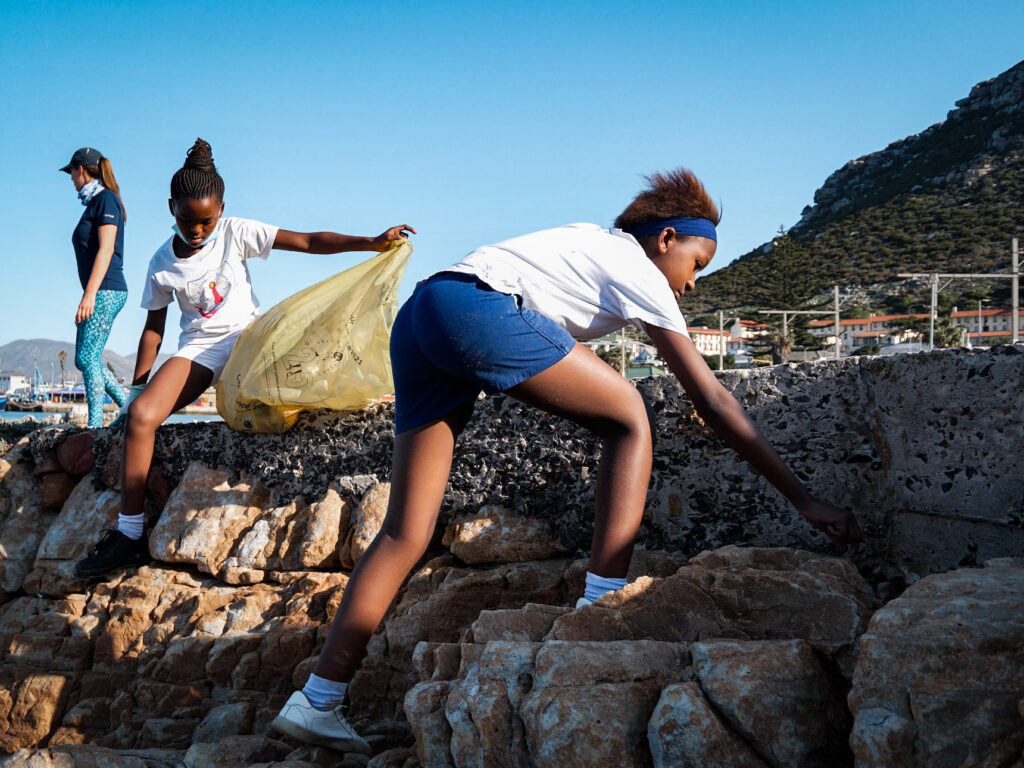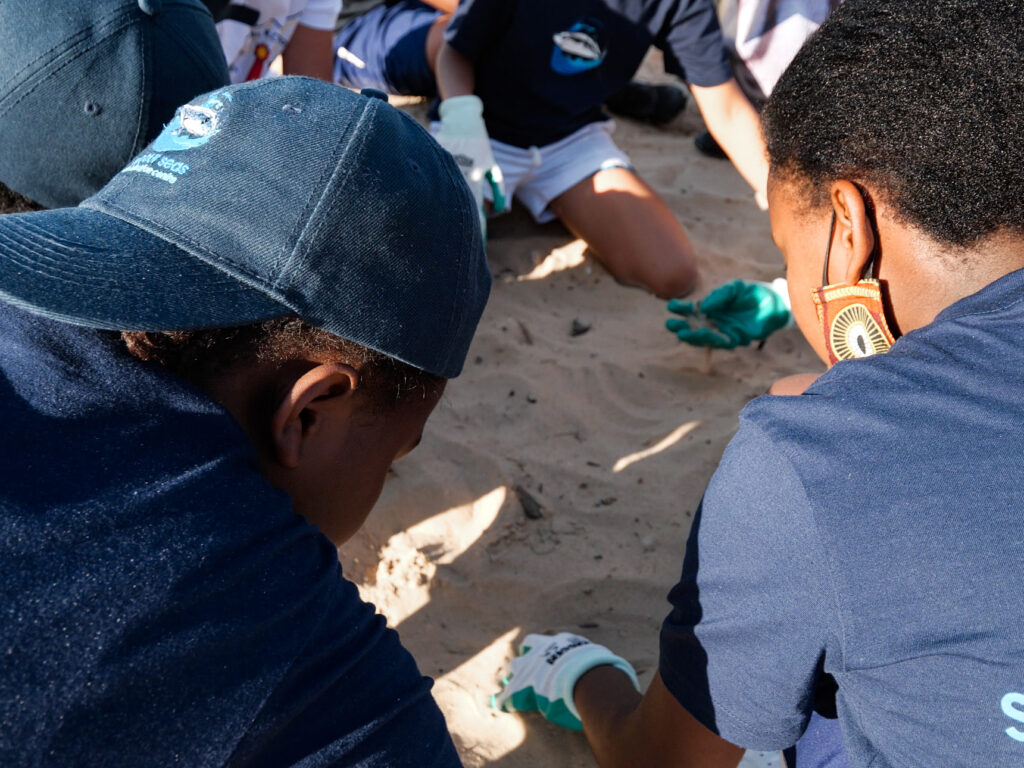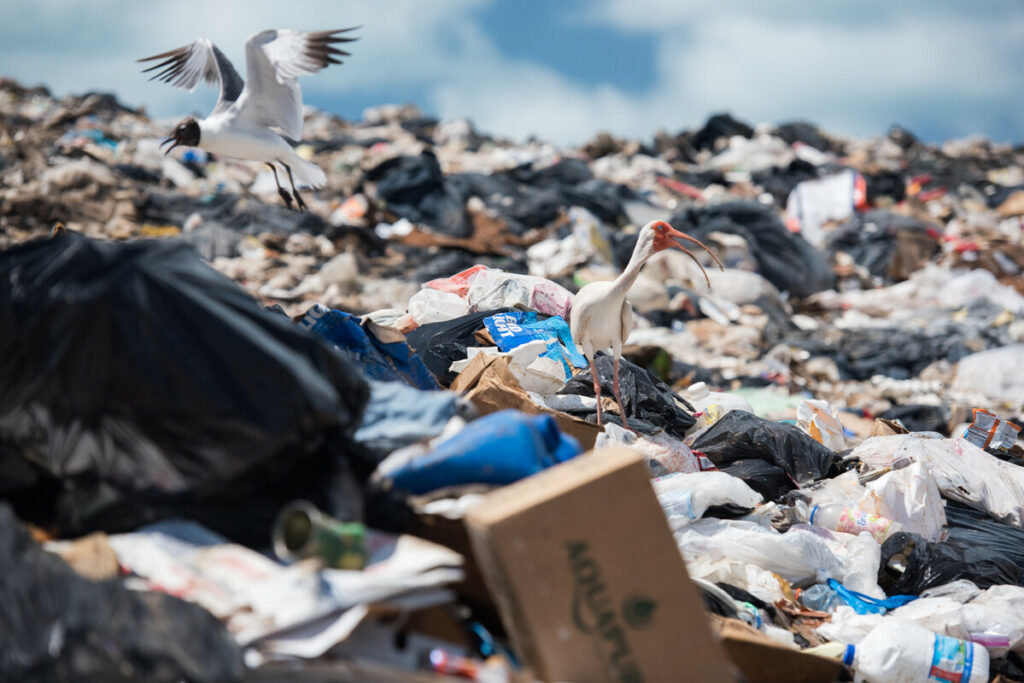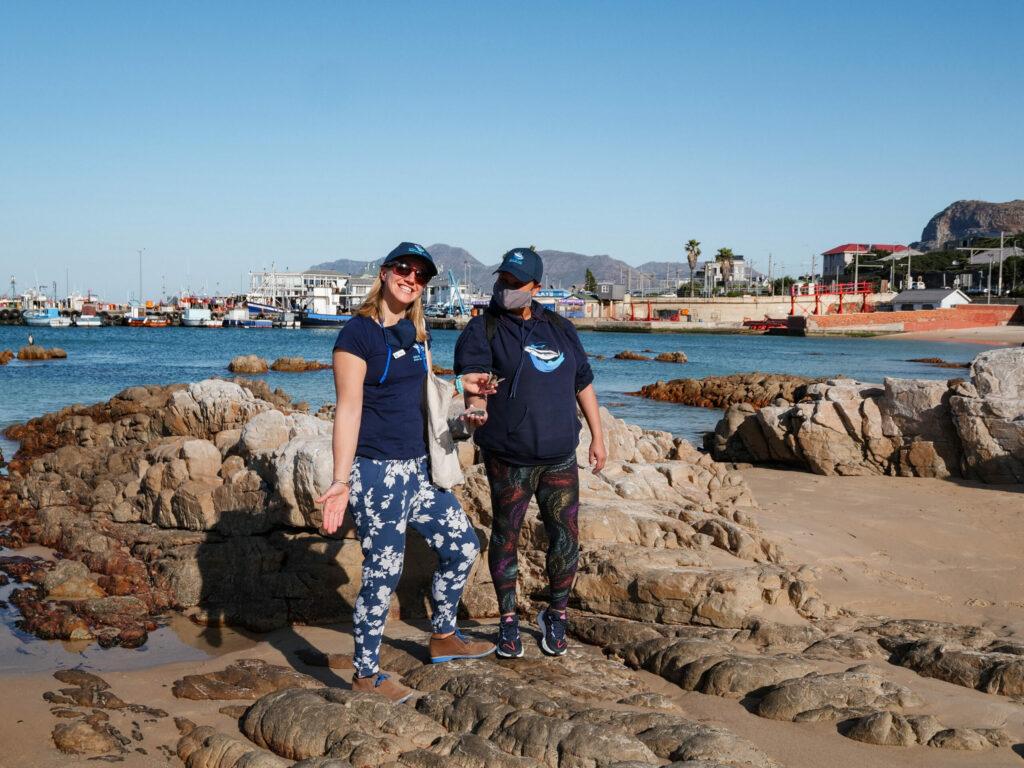Are you ready for International Coastal Clean Up Day?
It’s almost International Coastal Cleanup Day! With just five days to go until the 17th of September, we wanted to share the clean-ups are team will be attending across Cape Town.

International Coastal Clean Up Day is celebrated every year on the third Saturday of the month of September. Image by Danel Wentzel | Save Our Seas Foundation Shark Education Centre.
A brief overview
Coastal Cleanup Day was established by the Ocean Conservancy, with the first-ever cleanup event held on the west coast of Washington State in 1986. Now, each year, it is scheduled to be celebrated on the third Saturday of the month of September.
Plastic pollution is extremely hazardous to marine life, killing thousands of creatures. International Coastal Cleanup Day encourages people to help limit this problem by cleaning up litter that has been scattered all over our beaches.

A group of learners from our Sea School programme participated in a beach clean-up to remove litter from beaches. Image by Danel Wentzel | Save Our Seas Foundation Shark Education Centre.
Why Your Participation Matters
So, why is cleaning up trash from our coasts and communities so vital to our environmental health? Marine debris is one of the biggest threats to the health of our ocean and sea life, and scientists estimate that plastic pollution accounts for up to 80% of marine litter. Ideally, we would like to stop plastic at the source before its impacts our environment, but we also have to combat the massive amounts of plastic already in our ecosystem.
In fact, virtually all the plastic that has ever been created still exists today in some form. Instead of biodegrading (like organic materials), plastic photodegrades or breaks down into smaller and smaller pieces as it’s exposed to the elements. These small pieces persist in the environment even once the pieces (known as microplastics) are too small for the naked eye to see.
When plastic ends up in the ocean, marine life often mistakes it for food and eats it. Not only does that threaten the life of the animal, but it also ends up on your plate when you order sushi or other seafood. According to UNESCO, marine life can also become entangled in plastic that ends up in the ocean, causing the death of more than a million seabirds and 100,000 marine mammals every year!

Plastic pollution is responsible for the death of more than a million seabirds and 100,000 marine mammals every year! Image by Shin Arunrugstichai | Save Our Seas Foundation.
Get involved.
Here is a list of the clean-ups happing across Cape Town. Join us for one of these and see if you can spot our SOSF Shark Education Centre, team members.

Join for one of the listed beach clean-ups happening across Cape Town and see if you can spot the members of our education team. Image by Danel Wentzel | Save Our Seas Foundation Shark Education Centre.
Two Oceans Aquarium
Date: Saturday, 17 September 2022
Time: 09h00 to 11h00
Location: Monwabisi Beach
What to bring: Weather-appropriate clothing, water (in a reusable bottle), reusable gloves (like the ones you’d use for gardening or doing dishes), and your enthusiasm.
Sea The Bigger Picture x Trail Freedivers x Fisher Child Project
Date: Saturday, 17 September 2022
Time: 09h00 to 11h30
Location: Kalk Bay Harbour Beach
What to bring: Land and ocean clean. Bags and gloves will be provided. Bring your own dive gear.
There will also be a 5 km run before the clean to celebrate and run for our oceans!
Kommetjie Coastal Clean w. Ocean Conservancy
Date: Saturday, 17 September 2022
Time: 10h00 to 12h30
Location: Long Beach Kommetjie
What to bring: Weather-appropriate clothing, water (in a reusable bottle), reusable gloves (like the ones you’d use for gardening or doing dishes), and your enthusiasm.
Blaauwberg Nature Reserve
Date: Saturday, 17 September 2022
Time: 10h00 to 12h30
Location: Erstesteen Resort
What to bring: Weather-appropriate clothing, water (in a reusable bottle), reusable gloves (like the ones you’d use for gardening or doing dishes), and your enthusiasm.
